
Meet the CIRNA project team
The SNF-funded project 'CIRcularity of Nutrients in Agroecosystems and co-benefits for animal and human health' (CIRNA) has kicked off and is now starting with field and lab work activities in Kenya and Uganda. The project focuses on identifying suitable manure management practices for smallholders and understanding the trade-offs and synergies within an agroecological framework. Additionally, the project seeks to inform policy by providing recommendations based on its findings.
Read more about the project here.
Our project team consists of scientists, lecturers, students, and farmer representatives from five nationalities who are all passionate about organic resource management and finding sustainable solutions together with farmers and livestock keepers.
Lutz Merbold, PI (Agroscope)
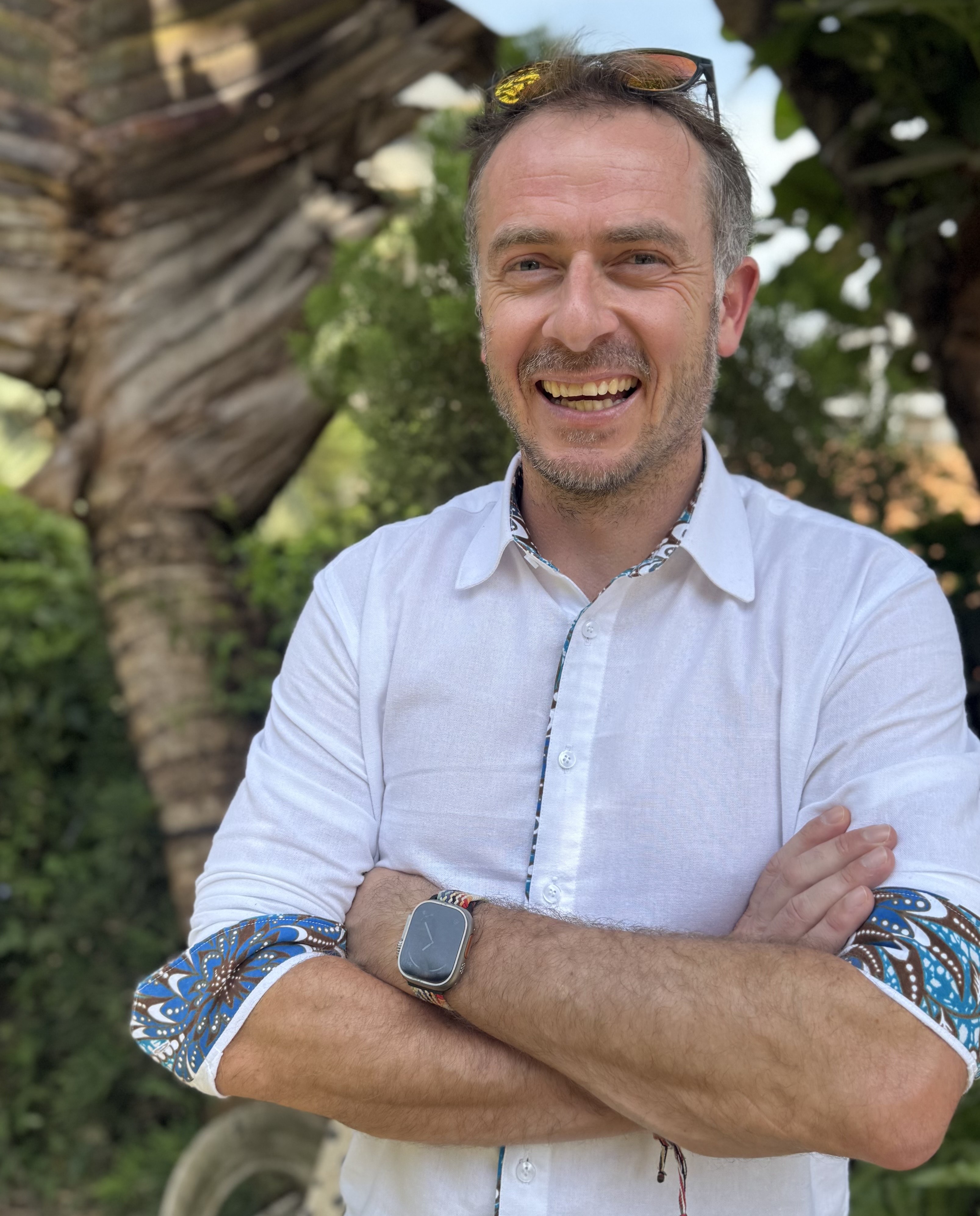 With over 14 years (post-PhD) of experience in Agricultural and Environmental Sciences, Merbold is passionate about understanding how ecosystems function and how they can provide sustainable services to society under climate change and in wider sense, how we can feed the world sustainably and healthy in the coming years.
With over 14 years (post-PhD) of experience in Agricultural and Environmental Sciences, Merbold is passionate about understanding how ecosystems function and how they can provide sustainable services to society under climate change and in wider sense, how we can feed the world sustainably and healthy in the coming years.
As an Executive Board Member and the Head of the Strategic Research Division Agroecology and Environment at Agroscope, the Swiss Confederation's center of excellence for agricultural research, Merbold leads a team of >200 scientists and experts who work on identifying innovative solutions for the challenges facing the agri-food sector and the environment today and in the future. The specific focus is on multiple environmental dimensions, ranging from climate change, to biodiversity, to surface water protection, to soil quality and health, to biosafety measures and more. The overall aim is to understand systems and for this, he develops robust indicators to inform various stakeholders (decision makers, farmers, scientists and the wider society).
His core competencies include environmental sciences, biogeochemistry, soil science, ecology, system ecology, education, and mentoring the next generation scientist. Merbold has a Doctor of Science degree in Environmental Science/Agricultural Sciences from ETH Zurich, and he has published >140 papers in peer-reviewed journals on topics such as greenhouse gas emissions, carbon and nitrogen cycles, and ecosystem responses to climate change, sustainable agricultural production and its linkages to animal and human health, agroecological assessments as well as modelling future scenarios. He is motivated to share his knowledge and expertise with the next generation of researchers, as well as to apply his research findings in the real world together with farmers, advisors and decision makers to support sustainable agriculture and a healthy environment.
Sonja Leitner, co-PI (ILRI)
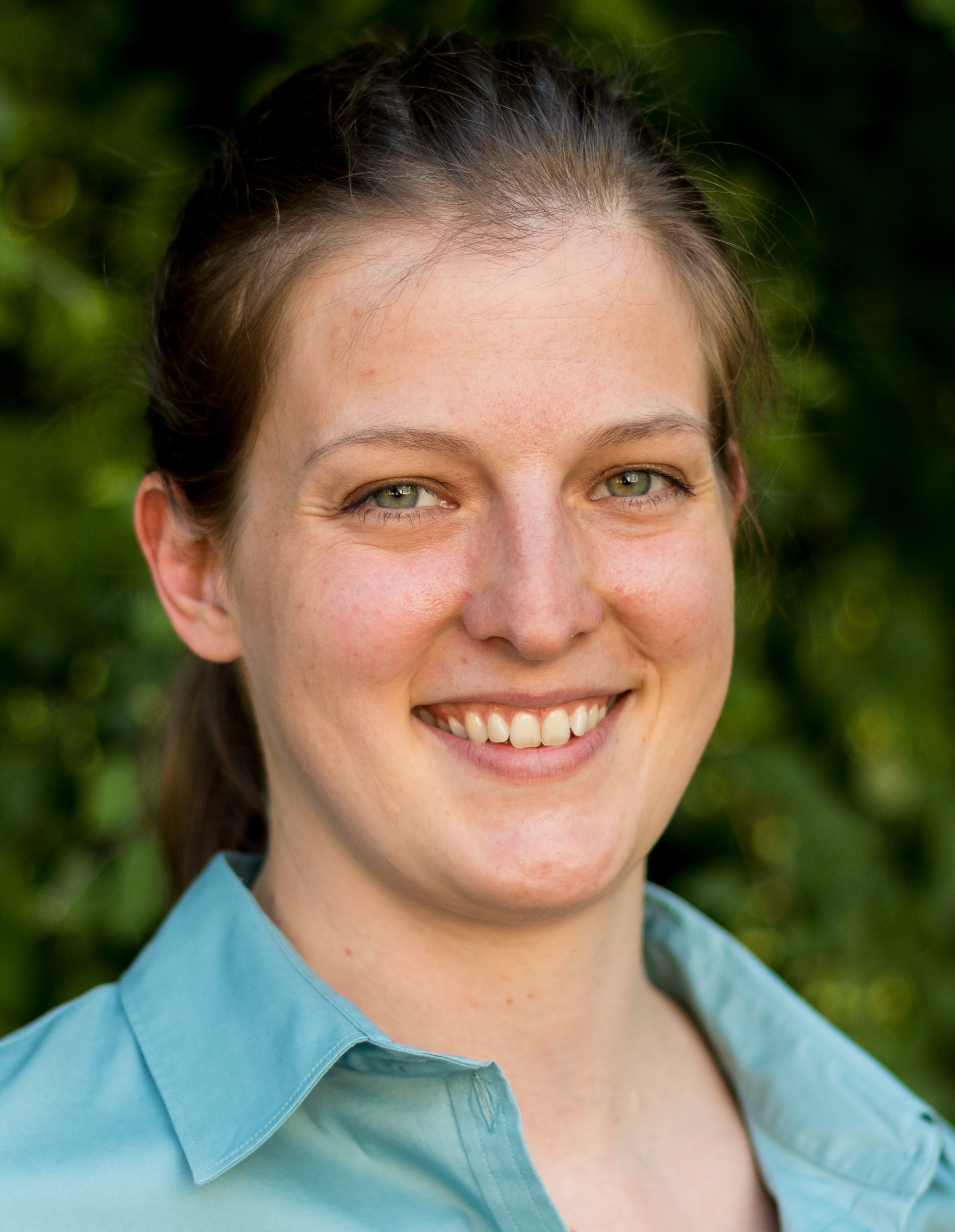 Sonja Leitner is an ecologist and biogeochemist working on carbon and nitrogen cycling in natural and agricultural ecosystems. She investigates nutrient transformations and nutrient losses via gaseous emissions and leaching, with a special focus on greenhouse gas and ammonia emissions. Her research focuses on options for circular soil and manure management that reduce nutrient losses to improve livestock productivity and help achieve climate change mitigation and adaptation. Furthermore, she works on ecosystem carbon cycling and sequestration in grasslands. She is based at the Mazingira Centre for Environmental Research and Education of the International Livestock Research Institute (ILRI) in Kenya, where she investigates the mixed crop-livestock systems and pastoral rangelands of East Africa.
Sonja Leitner is an ecologist and biogeochemist working on carbon and nitrogen cycling in natural and agricultural ecosystems. She investigates nutrient transformations and nutrient losses via gaseous emissions and leaching, with a special focus on greenhouse gas and ammonia emissions. Her research focuses on options for circular soil and manure management that reduce nutrient losses to improve livestock productivity and help achieve climate change mitigation and adaptation. Furthermore, she works on ecosystem carbon cycling and sequestration in grasslands. She is based at the Mazingira Centre for Environmental Research and Education of the International Livestock Research Institute (ILRI) in Kenya, where she investigates the mixed crop-livestock systems and pastoral rangelands of East Africa.
Elizabeth 'Annie' Cook (ILRI)
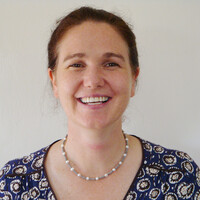 Annie Cook is a senior scientist in epidemiology with a focus on One Health and veterinary public health research in East Africa. She has a degree in veterinary science from the University of Sydney and spent 8 years in clinical practice in Australia and the UK before focusing full time on research. She also has a Masters in Wild Animal Health from the Royal Veterinary College and a Masters in Public Health in Developing Countries. from LSHTM. Annie's PhD research at the University of Edinburgh investigated the epidemiology of zoonotic diseases in slaughterhouse workers in western Kenya. This research reported on Q fever, leptospirosis, brucellosis and Rift Valley fever seroprevalence in slaughterhouse workers.
Annie Cook is a senior scientist in epidemiology with a focus on One Health and veterinary public health research in East Africa. She has a degree in veterinary science from the University of Sydney and spent 8 years in clinical practice in Australia and the UK before focusing full time on research. She also has a Masters in Wild Animal Health from the Royal Veterinary College and a Masters in Public Health in Developing Countries. from LSHTM. Annie's PhD research at the University of Edinburgh investigated the epidemiology of zoonotic diseases in slaughterhouse workers in western Kenya. This research reported on Q fever, leptospirosis, brucellosis and Rift Valley fever seroprevalence in slaughterhouse workers.
Since 2010 Cook has conducted a number of One Health projects in Kenya, Tanzania and Uganda investigating zoonotic, foodborne, and livestock diseases. She has a particular interest in zoonotic disease epidemiology at the wildlife-livestock-human interface and impact assessment of interventions to improve animal health and food safety.
Joshua Zake (Regenerate Africa)
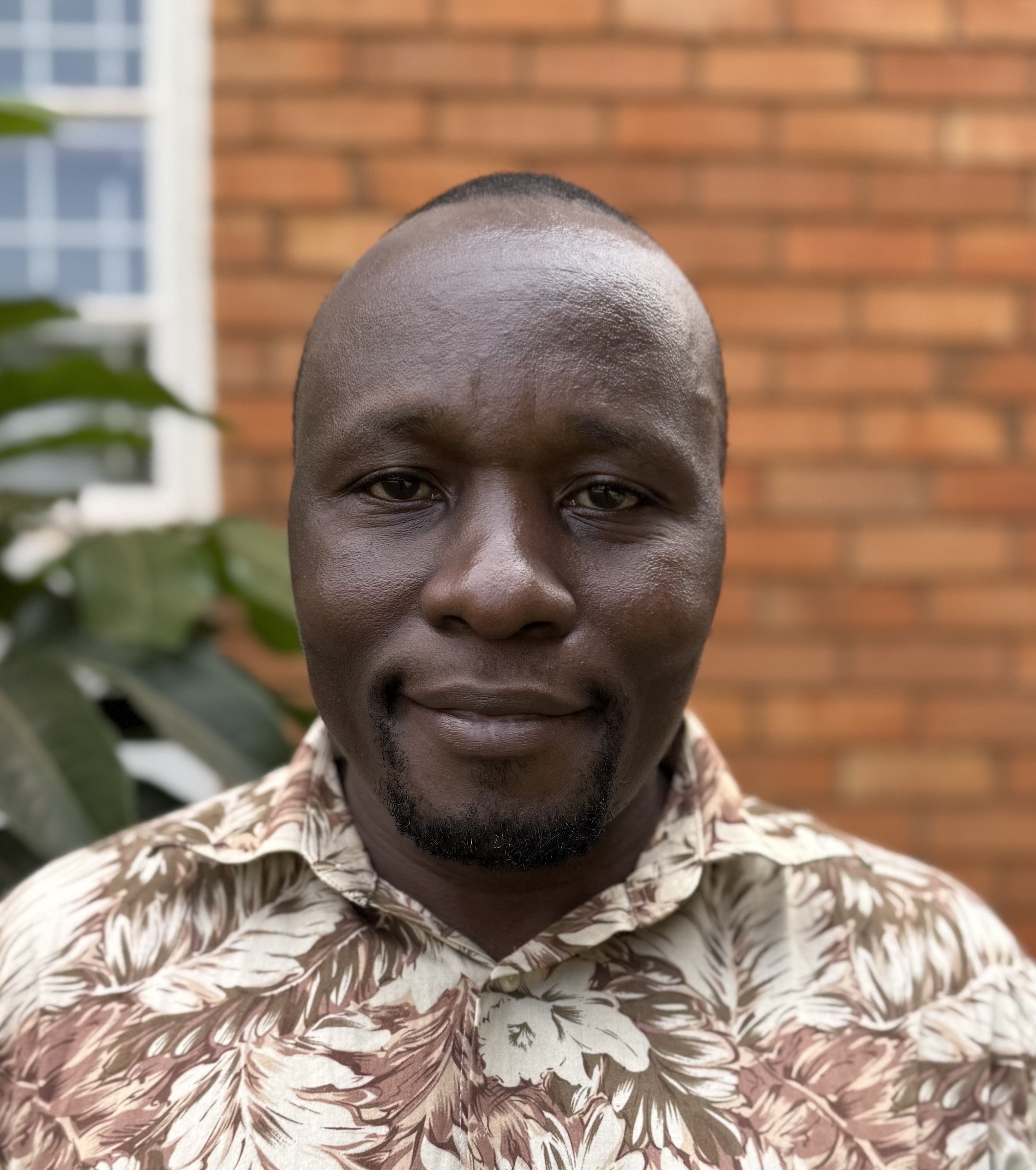 Joshua Zake is a Natural Resource and Environmental Management Scientist from Uganda with 22 years of professional experience. He holds a PhD in Natural Resource Management and Life Sciences from the BOKU University Vienna, Austria, and an MSc in Soil Science from Makerere University, Uganda. His research focuses on best practices and innovations that contribute to climate change adaptation and mitigation in smallholder farming systems in Uganda. Besides, he has been actively involved and contributed to the development and implementation of various policies that address drought, land and soil degradation in Uganda. He has engaged with smallholder farmers, policy makers, private sector, political leaders, researchers and scientists among others in the field of agriculture, environment and natural resources (e.g., soil, land-use, forestry, wetlands, water, energy, waste, minerals) management, climate change adaptation & mitigation, renewable energy access, water, sanitation and hygiene.
Joshua Zake is a Natural Resource and Environmental Management Scientist from Uganda with 22 years of professional experience. He holds a PhD in Natural Resource Management and Life Sciences from the BOKU University Vienna, Austria, and an MSc in Soil Science from Makerere University, Uganda. His research focuses on best practices and innovations that contribute to climate change adaptation and mitigation in smallholder farming systems in Uganda. Besides, he has been actively involved and contributed to the development and implementation of various policies that address drought, land and soil degradation in Uganda. He has engaged with smallholder farmers, policy makers, private sector, political leaders, researchers and scientists among others in the field of agriculture, environment and natural resources (e.g., soil, land-use, forestry, wetlands, water, energy, waste, minerals) management, climate change adaptation & mitigation, renewable energy access, water, sanitation and hygiene.
Zake currently works for Regenerate Africa as an independent scientist and consultant on Agriculture, Soil Science, Environment, Natural Resources Management, Climate Change, and Life Sciences. He is the Proprietor of Integrated Farms – Uganda, whose goal is to 'Demonstrate Nature based-solutions for community-based climate change adaptation, mitigation; improved livelihoods; biodiversity conservation and sustainable management of the Environment and natural resources.'
Daphne Muchai (Women Farmers' Association of Kenya)
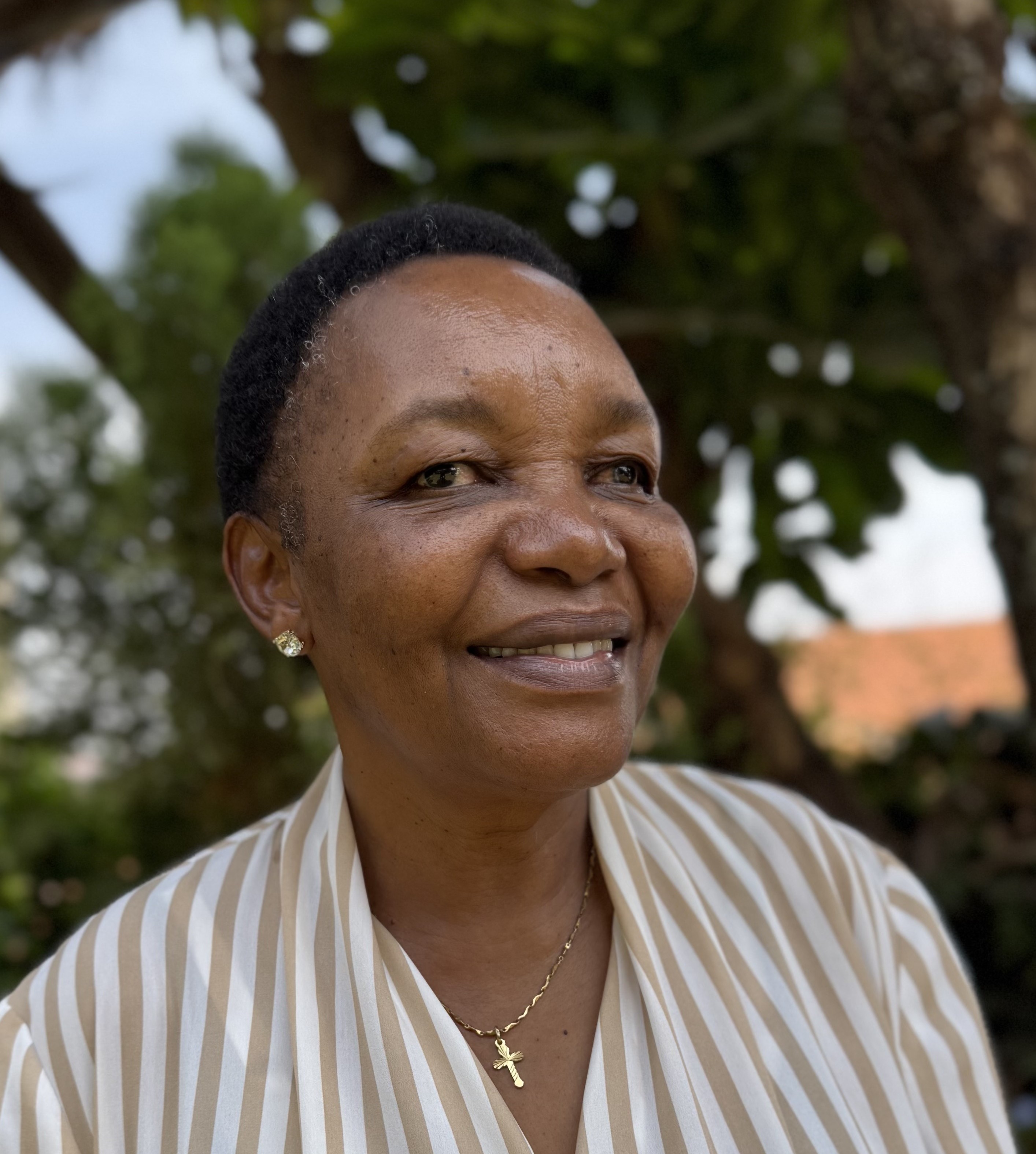 Daphne Muchai is the founder and current Executive Director of the Women Farmers Association of Kenya (WoFaAK) with 30 years’ experience working in public and private sectors in leadership and management positions. She holds an International certificate in Leadership and Organization for Women in Rural areas. From Germany, Master of Science (M.Sc.) in Agricultural Resource management U.O.N, International Certificate in Multi-stakeholder Processes for Knowledge Based Rural Innovation I.C.R.A. the Netherlands, Bachelor of Science Degree (B.Sc.) KEMU and Diploma in Agriculture and Home Economics Egerton University.
Daphne Muchai is the founder and current Executive Director of the Women Farmers Association of Kenya (WoFaAK) with 30 years’ experience working in public and private sectors in leadership and management positions. She holds an International certificate in Leadership and Organization for Women in Rural areas. From Germany, Master of Science (M.Sc.) in Agricultural Resource management U.O.N, International Certificate in Multi-stakeholder Processes for Knowledge Based Rural Innovation I.C.R.A. the Netherlands, Bachelor of Science Degree (B.Sc.) KEMU and Diploma in Agriculture and Home Economics Egerton University.
Muchai has specific competences in Gender Transformative approaches, Agribusiness, social inclusivity for rural Development, climate change approaches, Facilitation and training, Mentorship programs, Agri-Food transformation systems and Agricultural development, Climate Change and Environmental Conservation Lobby and advocacy and negation among others. Muchai sits in several National Boards in Kenya, for example the Kenya Women Economic Empowerment Forum, the Kenya Forum in Agricultural Advisory Service, and the Kenya Multi-Stakeholder Forum on Climate Change.
Joshua Waiswa (VSF Germany)
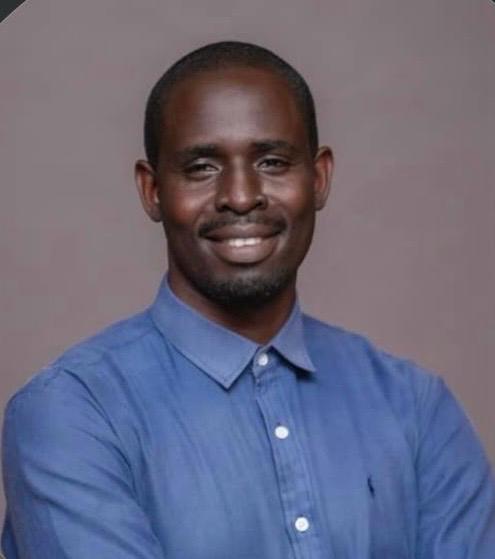
Joshua Waiswa is a seasoned veterinary and livestock development specialist with extensive experience in sustainable livestock management, cooperative development and environmental impact assessment in Uganda. He holds a Master’s degree in International Infectious Disease Management from Makerere University and a varied academic background including veterinary medicine, rural development and project planning. With over a decade of leadership in projects focused on livestock productivity, disease control and cooperative enterprise strengthening, Joshua W. has successfully managed multiple international and government-funded initiatives. His expertise encompasses integrated disease surveillance, market-oriented livestock production and fostering cross-sectoral partnerships that promote sustainable agricultural practices.
Currently serving as a project manager and livestock expert, he has contributed to developing environmental and social impact assessments, emphasizing environmentally friendly and resource-efficient livestock systems. His work reflects a strong commitment to improving agro-ecosystems through innovative approaches that enhance nutrient cycling, reduce waste, and promote ecological resilience in Uganda’s agricultural landscape
Constantine Katongole (Makerere University)
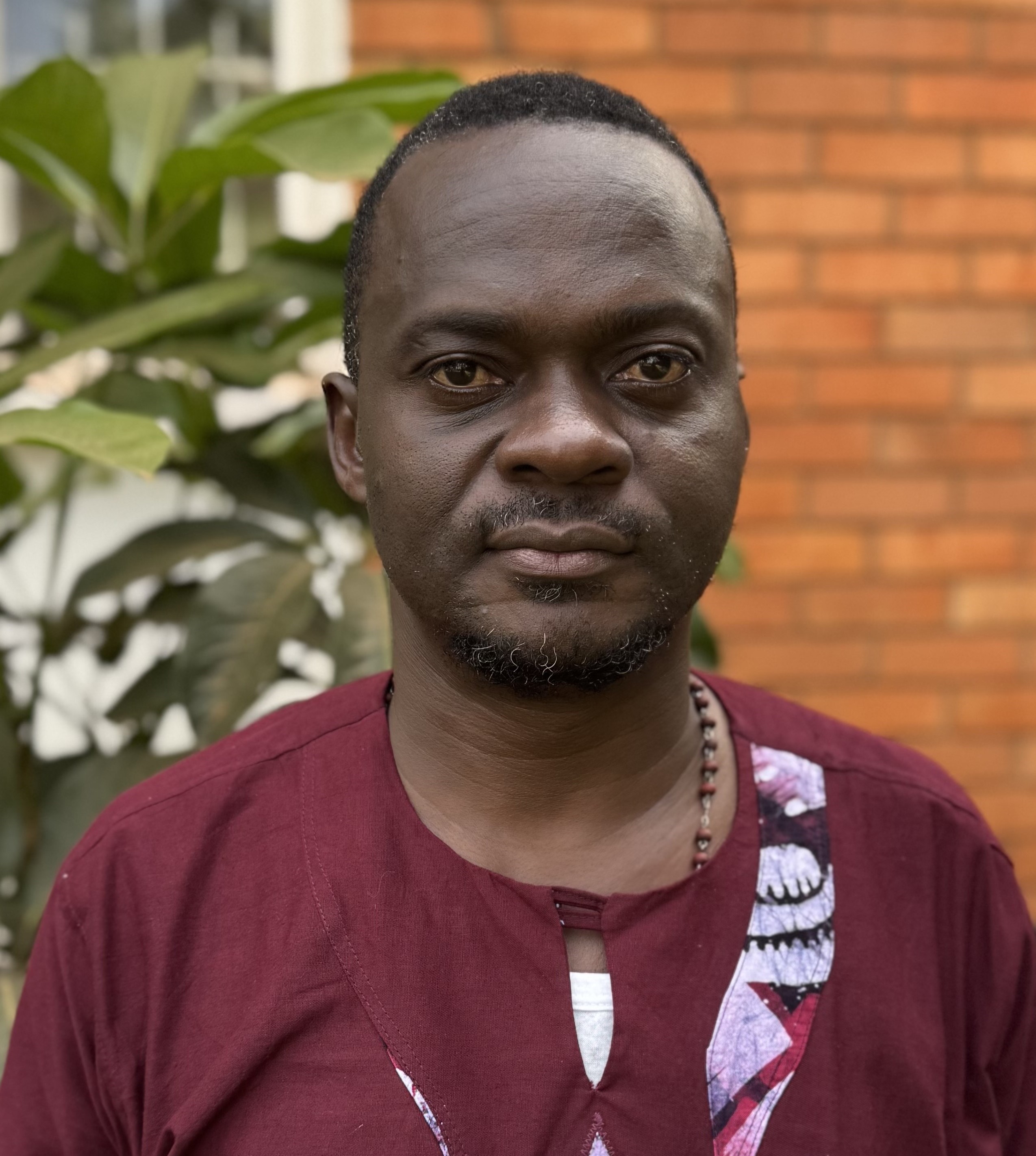 Constantine Katongole is a Senior Lecturer in the Department of Animal and Range Sciences at Makerere University (Kampala, Uganda). He holds a PhD in Animal Science (with a bias in Animal Nutrition and Metabolism). As a researcher, Constantine is particularly interested in research evolving towards benefits, opportunities, and threats regarding organic waste management. Katongole has undertaken research and published scientific papers on innovations aimed at turning organic waste into a resource, linkages between animal feeding practices and manure quality and gaseous emissions, urban solid waste recycling potential, and biogas production from animal manure. In addition, Katongole is the coordinator of the Makerere University Centre of Excellence in Waste Management, a bio-waste management technology hub of the School of Agricultural Sciences in the College of Agricultural and Environmental Sciences, Makerere University. In 2022 he was nominated to represent Makerere University on the national multi-stakeholder platform on waste management and energy recovery. It is these experiences that motivate Katongole’s interest in research on livestock manure management systems.
Constantine Katongole is a Senior Lecturer in the Department of Animal and Range Sciences at Makerere University (Kampala, Uganda). He holds a PhD in Animal Science (with a bias in Animal Nutrition and Metabolism). As a researcher, Constantine is particularly interested in research evolving towards benefits, opportunities, and threats regarding organic waste management. Katongole has undertaken research and published scientific papers on innovations aimed at turning organic waste into a resource, linkages between animal feeding practices and manure quality and gaseous emissions, urban solid waste recycling potential, and biogas production from animal manure. In addition, Katongole is the coordinator of the Makerere University Centre of Excellence in Waste Management, a bio-waste management technology hub of the School of Agricultural Sciences in the College of Agricultural and Environmental Sciences, Makerere University. In 2022 he was nominated to represent Makerere University on the national multi-stakeholder platform on waste management and energy recovery. It is these experiences that motivate Katongole’s interest in research on livestock manure management systems.
Caroline Wambui (Maseno University)
 Caroline Wambui is a Senior Lecturer in the Department of Animal and Fisheries Sciences, School of Agriculture, Food Security and Environmental Sciences, Maseno University, Kenya. She holds a PhD in Global Arid Land Science from the United Graduate School of Agricultural Sciences, Tottori University, Japan with a bias in Ruminant Nutrition and Feed Utilisation. She has experience in teaching, research, postgraduate supervision and community outreach from a career spanning over a decade in the higher education sector. Her research has extensively built expertise in the evaluation of nutritive value of non-conventional feed resources for mainstream feeding of livestock in the tropics leading towards developing economically viable, environmentally sustainable and socially acceptable feed-use resource technologies for farmers in developing countries. Wambui has also been involved in research targeting collection of livestock activity data and manure management practices from cattle production systems in western Kenya for measurement of greenhouse gases using the IPCC Tier 2 protocols. She brings into the CIRNA project these experiences and will co-supervise student works on baseline data collection of existing manure management practises as well as testing effects of farmer-feasible manure management intervention strategies on manure quality and safety.
Caroline Wambui is a Senior Lecturer in the Department of Animal and Fisheries Sciences, School of Agriculture, Food Security and Environmental Sciences, Maseno University, Kenya. She holds a PhD in Global Arid Land Science from the United Graduate School of Agricultural Sciences, Tottori University, Japan with a bias in Ruminant Nutrition and Feed Utilisation. She has experience in teaching, research, postgraduate supervision and community outreach from a career spanning over a decade in the higher education sector. Her research has extensively built expertise in the evaluation of nutritive value of non-conventional feed resources for mainstream feeding of livestock in the tropics leading towards developing economically viable, environmentally sustainable and socially acceptable feed-use resource technologies for farmers in developing countries. Wambui has also been involved in research targeting collection of livestock activity data and manure management practices from cattle production systems in western Kenya for measurement of greenhouse gases using the IPCC Tier 2 protocols. She brings into the CIRNA project these experiences and will co-supervise student works on baseline data collection of existing manure management practises as well as testing effects of farmer-feasible manure management intervention strategies on manure quality and safety.
Ibrahim Wanyama, Postdoc (ILRI)
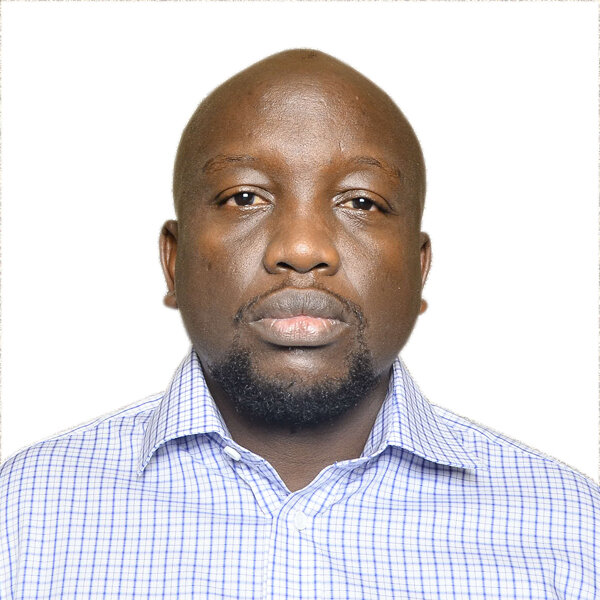 Ibrahim Wanyama is a Postdoctoral fellow at the International Livestock Research Institute (ILRI), Uganda office, working on manure management and climate change. His research is in the broad area of Agroecology, and he has a strong foundation in agronomy, soil science and greenhouse gas fluxes from landscapes. His research delves into the complex processes of nutrient cycling that affect greenhouse gas emissions, as well as the dynamics of nutrients within soils and manure. He is particularly focused on developing crop-livestock systems that enhance sustainability for the environment and humans. Ultimately, his goal is to transform livestock manure from a waste product into a valuable resource.
Ibrahim Wanyama is a Postdoctoral fellow at the International Livestock Research Institute (ILRI), Uganda office, working on manure management and climate change. His research is in the broad area of Agroecology, and he has a strong foundation in agronomy, soil science and greenhouse gas fluxes from landscapes. His research delves into the complex processes of nutrient cycling that affect greenhouse gas emissions, as well as the dynamics of nutrients within soils and manure. He is particularly focused on developing crop-livestock systems that enhance sustainability for the environment and humans. Ultimately, his goal is to transform livestock manure from a waste product into a valuable resource.
Wanyama possesses extensive experience of 15 years in smallholder farming systems across Africa, along with expertise in manure management practices within the continent. His skills include stakeholder engagement, conducting surveys and analyses, measuring greenhouse gas emissions, and compiling national inventories. Additionally, he has experience supervising students in related fields. Wanyama has published over 10 peer reviewed articles, and over 10 working papers and technical reports in the areas of agronomy, soil science, greenhouse gas fluxes and manure management.
Mirja Michalschek, Postdoc (Agroscope)
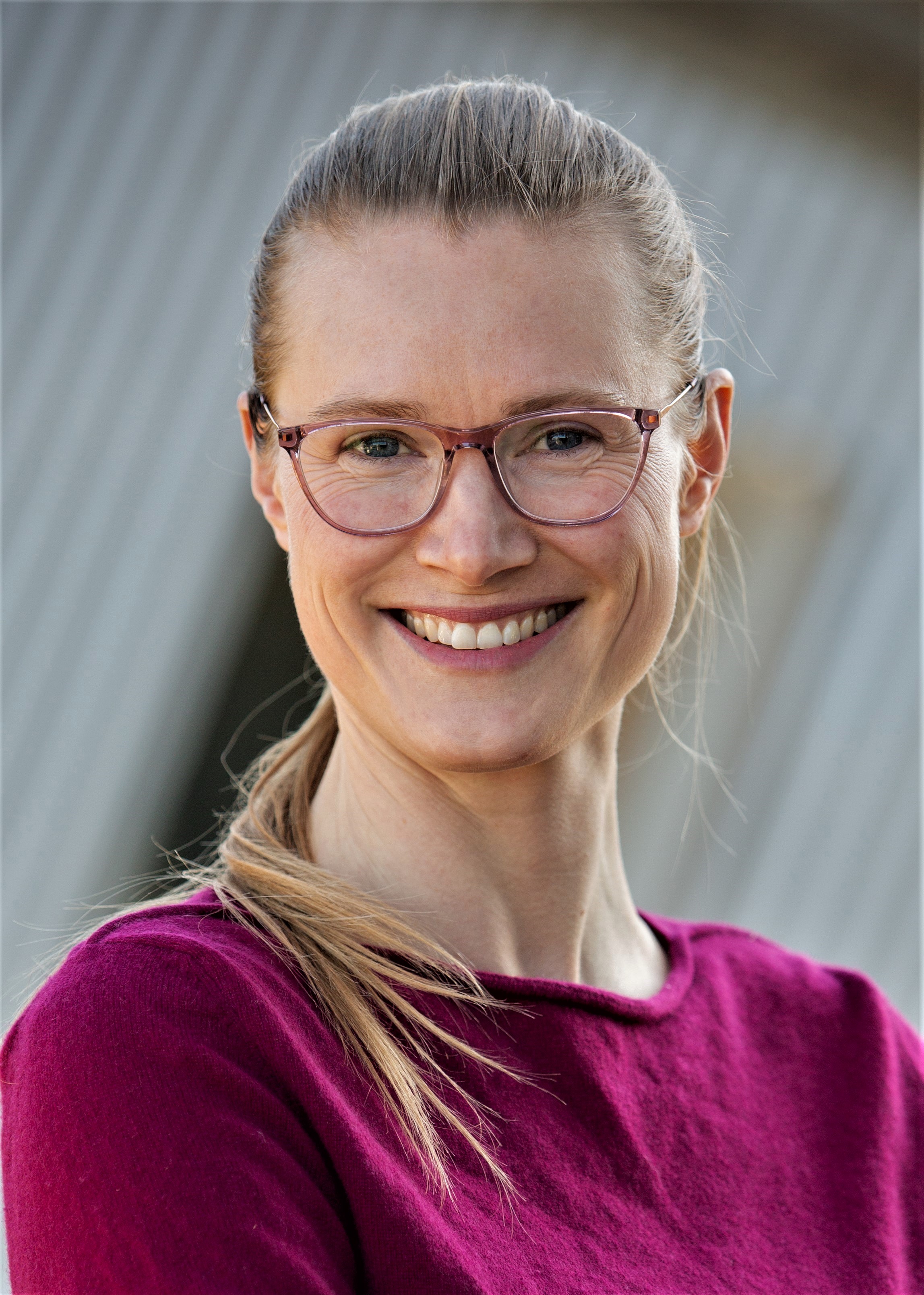 Mirja Michalschek is a Postdoctoral researcher at Agroscope, Switzerland, working for the SNF-funded CIRNA project to analyze and scale processes and innovations for improved nutrient cycling through agroecological practices. Michalschek’s areas of expertise are farming systems analysis, whole-farm modeling, participatory quantitative and qualitative research, serious gaming, innovation scaling and project management. Between 2012 and 2022, Michalschek worked as an Independent Consultant for institutions including the UN FAO, the Asian Development Bank, the European Commission and USAID. She completed her PhD (2014-2018) at Wageningen University & Research (WUR) as part of the Farming Systems Ecology group in collaboration with the Feed the Future program of the US Government. Michalschek worked extensively in East and West Africa, the Middle East, Asia and Central America. Michalschek is a Systemic Coach and Change Manager, too, and deeply cares about sustainable human resource management.
Mirja Michalschek is a Postdoctoral researcher at Agroscope, Switzerland, working for the SNF-funded CIRNA project to analyze and scale processes and innovations for improved nutrient cycling through agroecological practices. Michalschek’s areas of expertise are farming systems analysis, whole-farm modeling, participatory quantitative and qualitative research, serious gaming, innovation scaling and project management. Between 2012 and 2022, Michalschek worked as an Independent Consultant for institutions including the UN FAO, the Asian Development Bank, the European Commission and USAID. She completed her PhD (2014-2018) at Wageningen University & Research (WUR) as part of the Farming Systems Ecology group in collaboration with the Feed the Future program of the US Government. Michalschek worked extensively in East and West Africa, the Middle East, Asia and Central America. Michalschek is a Systemic Coach and Change Manager, too, and deeply cares about sustainable human resource management.
Winnie Ntinyari
Winnie Ntinyari is a Postdoctoral researcher at the International Livestock Research Institute based in Nairobi, Kenya. She is a soil-plant and environmental health researcher with over 8 years of experience in nutrient cycling, agronomy, greenhouse gas emissions, agroecology, and climate change adaptation. She has a strong commitment to multidisciplinary collaborations, backed by valuable international experience, contributing insights from diverse global contexts. Winnie holds a PhD and an MSc in Agronomy from Kenyatta University, Kenya, and has collaborated with Forschungszentrum Jülich (Germany), the International Institute of Tropical Agriculture (IITA), and Aarhus University, where she completed a postdoc in the soil fertility group. In the CIRNA project, Winnie contributes to the development of manure interventions that target sanitization by killing pathogens while at the same time producing manure with a good fertilizer quality.
Penninah Kawuma, MSc student (Makerere University)
 Penninah Kawuma is a Master student in Soil Science at Makerere University, where she is also conducting research under the CIRNA project. Her work is focused on developing practical and sustainable pig manure management strategies that aim to reduce gaseous emissions, nutrient losses, and zoonotic pathogens, while enhancing manure's fertilizer value in smallholder crop-pig systems.
Penninah Kawuma is a Master student in Soil Science at Makerere University, where she is also conducting research under the CIRNA project. Her work is focused on developing practical and sustainable pig manure management strategies that aim to reduce gaseous emissions, nutrient losses, and zoonotic pathogens, while enhancing manure's fertilizer value in smallholder crop-pig systems.
With a background in Agriculture (Bachelor degree), Kawuma has gained valuable experience as a research assistant at Makerere University, contributing to projects like ProteinAfrica, UniCARSSA, and FLR\R1\201004. Her expertise spans soil quality and suitability assessments, soil surveys, and research on organic fertilizers, including black soldier fly frass. Passionate about advancing her career as a researcher, Kawuma is committed to generating impactful solutions for sustainable agriculture and contributing to the broader knowledge base in her field.
Seth Owala, MSc student (Maseno University)
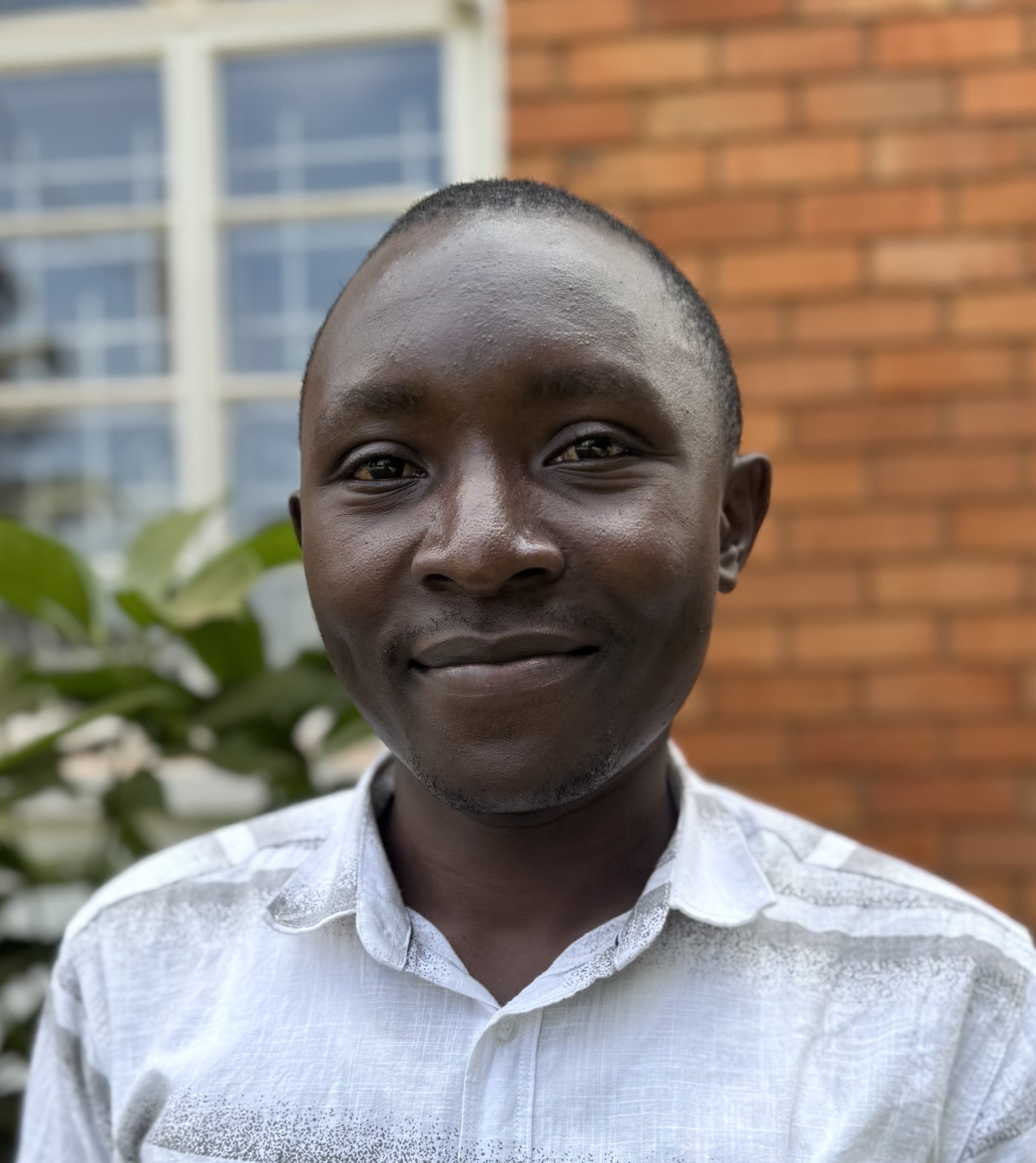 Seth Owala is an integrated water resource manager, with over 5 years of experience in this area of expertise. He is a registered and licensed Environmental Impact Assessment and Audit associate expert. He has worked as an Environmental, Health and Safety officer under the Vector Link Project and at Shanxi Geological Engineering Exploration Institute. He has also worked as a Hydrologist and Water Research Intern at the Ministry of Water, Sanitation and Irrigation, Nairobi. He has handled several environmental impact assessment and audit projects, touching on commercial and residential developments, agricultural hubs, gold leaching plants, agro-processing companies, retail shops, petrol stations, water purification plants, bakeries, hotels, car dealership yards and auto-repair firms within Kisumu, Narok, Nakuru, Vihiga, Siaya and Migori. He holds Bachelor of Science in Earth Science (Hydrology and Water Resource Management Option) with I.T. from Maseno University and is currently pursuing his Master of Science (Environmental Science), from the same institution, as part of the CIRNA project.
Seth Owala is an integrated water resource manager, with over 5 years of experience in this area of expertise. He is a registered and licensed Environmental Impact Assessment and Audit associate expert. He has worked as an Environmental, Health and Safety officer under the Vector Link Project and at Shanxi Geological Engineering Exploration Institute. He has also worked as a Hydrologist and Water Research Intern at the Ministry of Water, Sanitation and Irrigation, Nairobi. He has handled several environmental impact assessment and audit projects, touching on commercial and residential developments, agricultural hubs, gold leaching plants, agro-processing companies, retail shops, petrol stations, water purification plants, bakeries, hotels, car dealership yards and auto-repair firms within Kisumu, Narok, Nakuru, Vihiga, Siaya and Migori. He holds Bachelor of Science in Earth Science (Hydrology and Water Resource Management Option) with I.T. from Maseno University and is currently pursuing his Master of Science (Environmental Science), from the same institution, as part of the CIRNA project.
Owala is passionate about environmental education and awareness creation, especially on topics touching on climate change, environmental conservation and protection.
Mathew Odipo, MSc student (Maseno University)
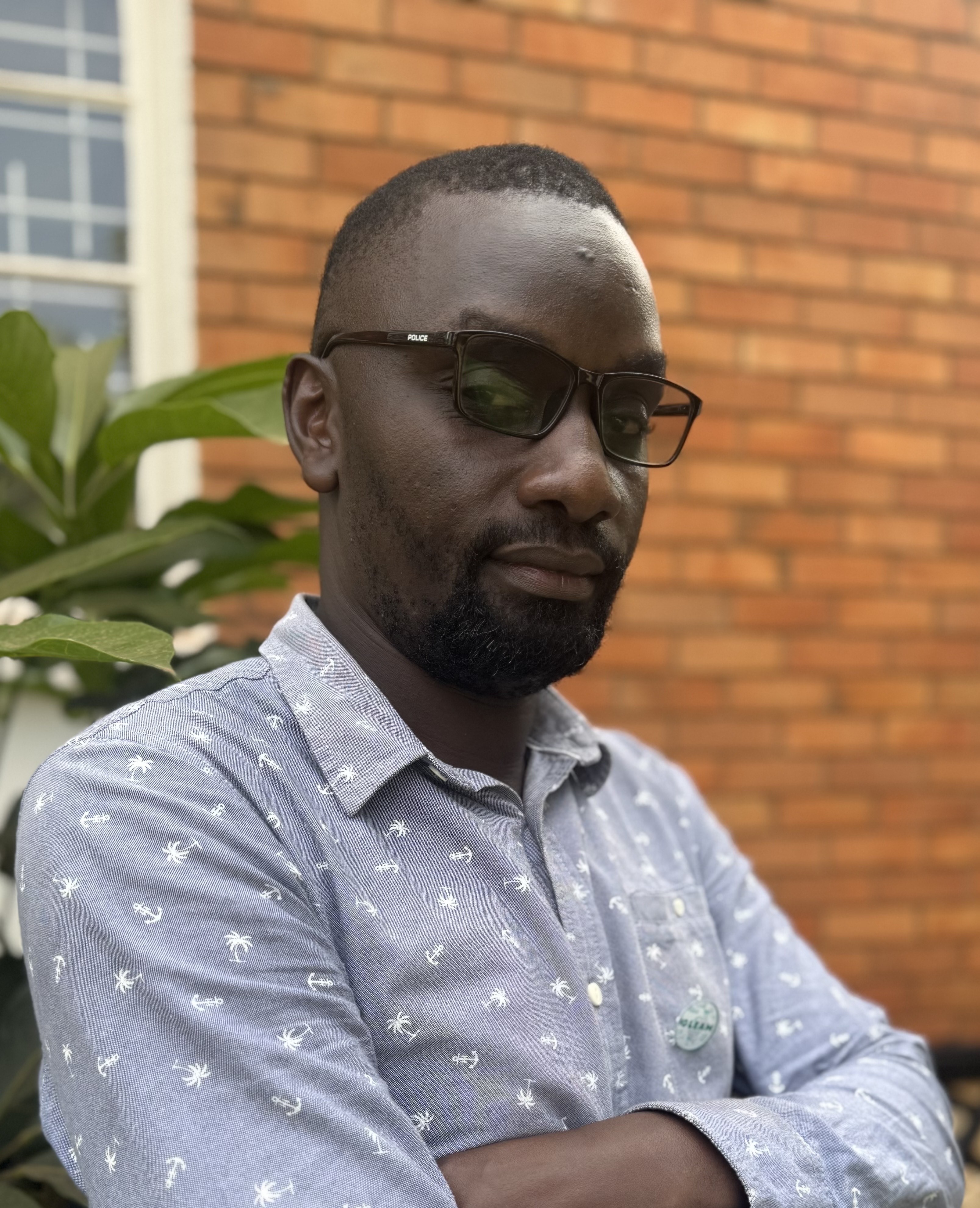 Mathew Odipo is an Agricultural Officer and Climate-Smart/Regenerative Agriculture Specialist with over 10 years’ experience in the agricultural sector in Kenya. He has worked in several organizations including County Government of Busia, Improving Economies for Stronger Communities (IESC), Innovations for Poverty Action (IPA), and Mumias Sugar Company. Odipo’s career objective is to improve the livelihoods and resilience of rural households by enhancing their capacity and improving their livelihoods through capacity building and promotion of agroecological practices and technologies.
Mathew Odipo is an Agricultural Officer and Climate-Smart/Regenerative Agriculture Specialist with over 10 years’ experience in the agricultural sector in Kenya. He has worked in several organizations including County Government of Busia, Improving Economies for Stronger Communities (IESC), Innovations for Poverty Action (IPA), and Mumias Sugar Company. Odipo’s career objective is to improve the livelihoods and resilience of rural households by enhancing their capacity and improving their livelihoods through capacity building and promotion of agroecological practices and technologies.
Odipo is currently a Master of Science (Agronomy) student at Maseno University undertaking research work on improving manure management practices in smallholder crop-dairy cattle production systems in Kenya in the Circularity of Nutrients in Agro-Ecosystems and Co-benefits on animal and human health (CIRNA) project.
Nelson Kajoba, MSc student (Makerere University)
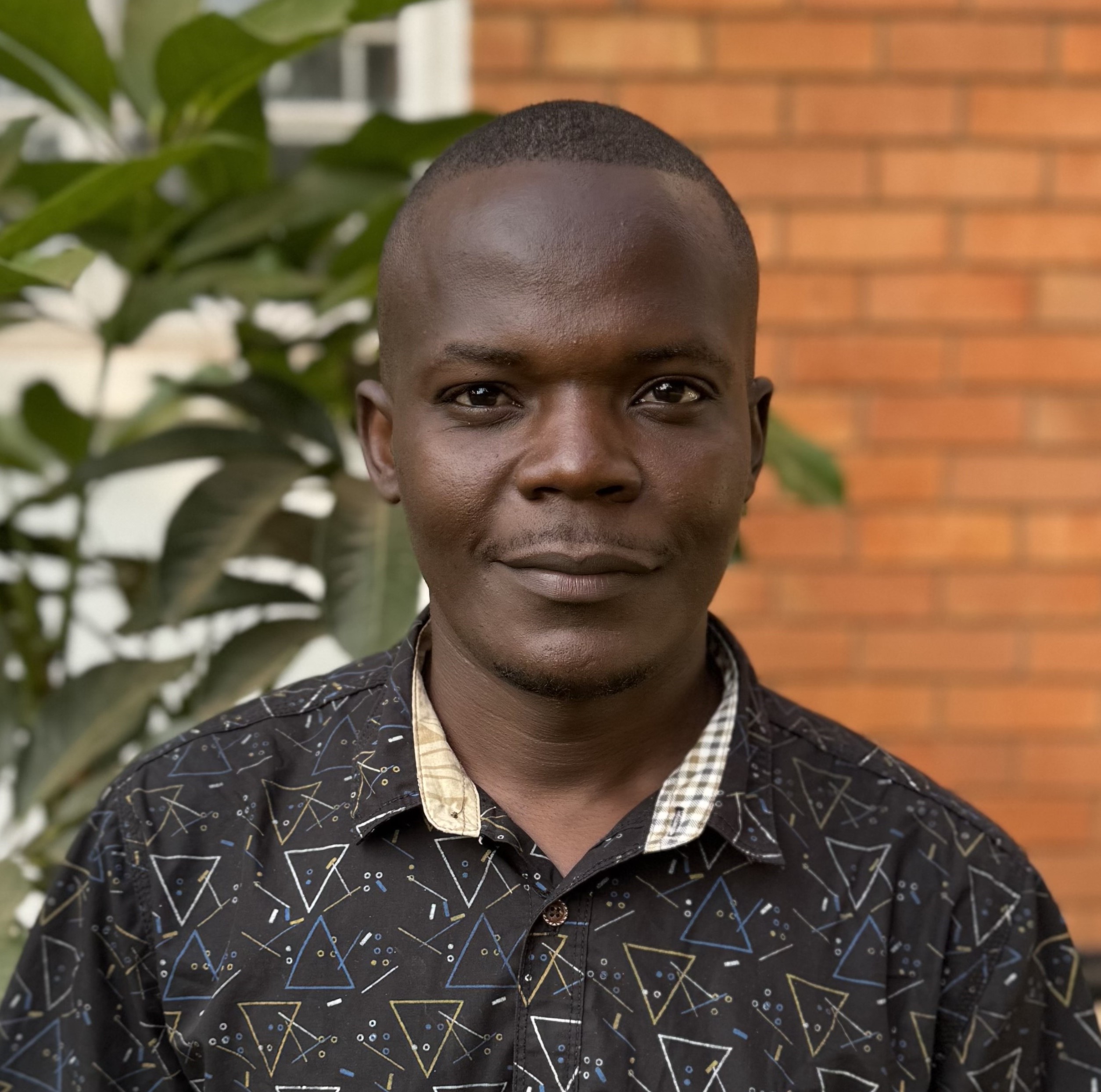 Nelson Kajoba is a livestock and agro-ecology enthusiast with keen interest in non-ruminant nutrition & welfare. He holds a Bachelor of Science in Agriculture and is currently a post-graduate student of Makerere University pursuing a Masters’ of science degree in Animal science. He is undertaking a study on feeding and manure management practices in smallholder crop-pig systems in Uganda and their implications on manure chemical and zoonotic pathogen composition funded by Circularity of Nutrients in Agroecosystems and co-benefits for animal and human health (CIRNA) project.
Nelson Kajoba is a livestock and agro-ecology enthusiast with keen interest in non-ruminant nutrition & welfare. He holds a Bachelor of Science in Agriculture and is currently a post-graduate student of Makerere University pursuing a Masters’ of science degree in Animal science. He is undertaking a study on feeding and manure management practices in smallholder crop-pig systems in Uganda and their implications on manure chemical and zoonotic pathogen composition funded by Circularity of Nutrients in Agroecosystems and co-benefits for animal and human health (CIRNA) project.
Kajoba has over 10 years’ experience working with smallholder farming communities in mid-western Uganda to improve their agricultural productivity, efficiency, promotion of environmental conservation, as well protection of rights of vulnerable persons. British American Tobacco Uganda, Alliance One International, and Asili Farms facilitated these engagements.




